US Ambassador sees metabolic and robotic innovation at Imperial
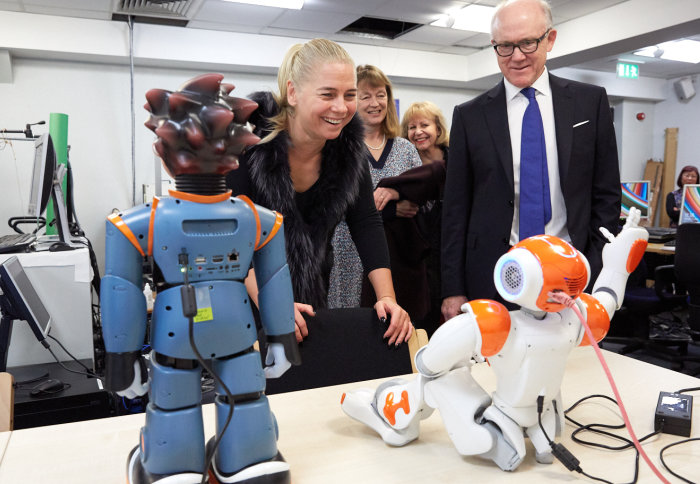
Professor Maja Pantic demonstrates emotion reading robots to Ambassador Johnson
Ambassador Robert ‘Woody’ Johnson, visited Imperial yesterday.
President Alice Gast and Vice President (International) Maggie Dallman showed Ambassador Johnson a selection of research highlights. The Ambassador was accompanied by the US Embassy's Environment, Science, Technology and Health Officer Mahvash Siddiqui.
The group toured the Bio-inspired Metabolic Technology Lab, where Dr 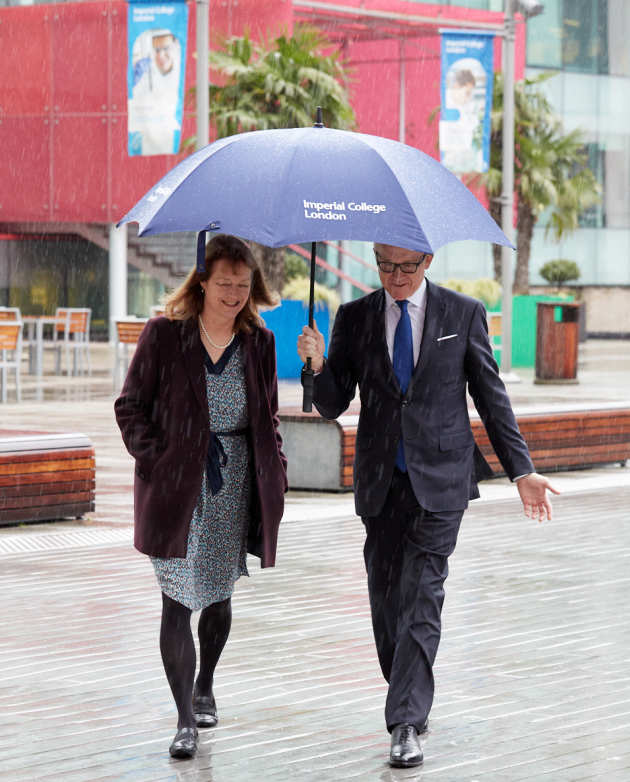 Pantelis Georgiou and colleagues are developing wearable tech to tackle diabetes, and the Intelligent Behaviour Understanding Group (iBug), where Professor Maja Pantic’s team are using robots to help children with autism to better express and interpret emotions.
Pantelis Georgiou and colleagues are developing wearable tech to tackle diabetes, and the Intelligent Behaviour Understanding Group (iBug), where Professor Maja Pantic’s team are using robots to help children with autism to better express and interpret emotions.
The visit came as Imperial’s connections with the United States grow. The United States is Imperial’s top academic research collaborator, with more than 10,000 Imperial papers having a US co-author within the last decade. American student numbers have risen to 250 this year, including Fulbright and Marshall Scholars.
The visit took place during British Science Week, and the Ambassador emphasised his enthusiastic support for science, technology, innovation and entrepreneurship - all areas where Imperial is successfully collaborating with the US Embassy.
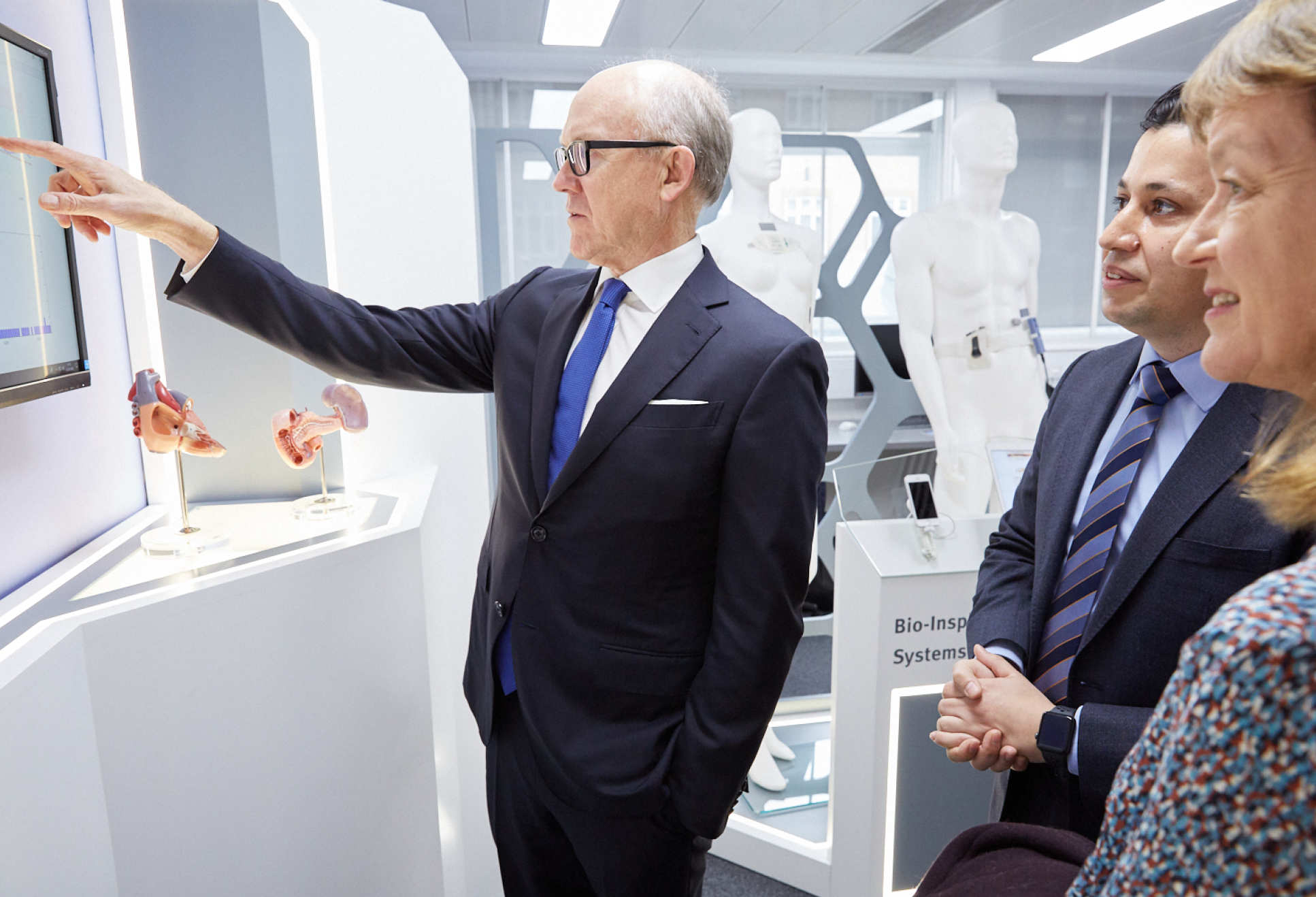
Dr Georgiou explained how Imperial-developed ultra-low power micro-electronics, bio-inspired circuits and systems, and lab-on-chip technology are creating novel medical devices, including an artificial pancreas for diabetes treatment.
Future of teaching?
Professor Maja Pantic demonstrated the Zeno robot, which mimicked the Ambassador’s expressions in a similar way to how it is used by therapists to support autistic children. Ambassador Johnson was struck by the potential for Imperial’s robots to augment traditional learning techniques. “This is maybe the future of teaching,” he said.
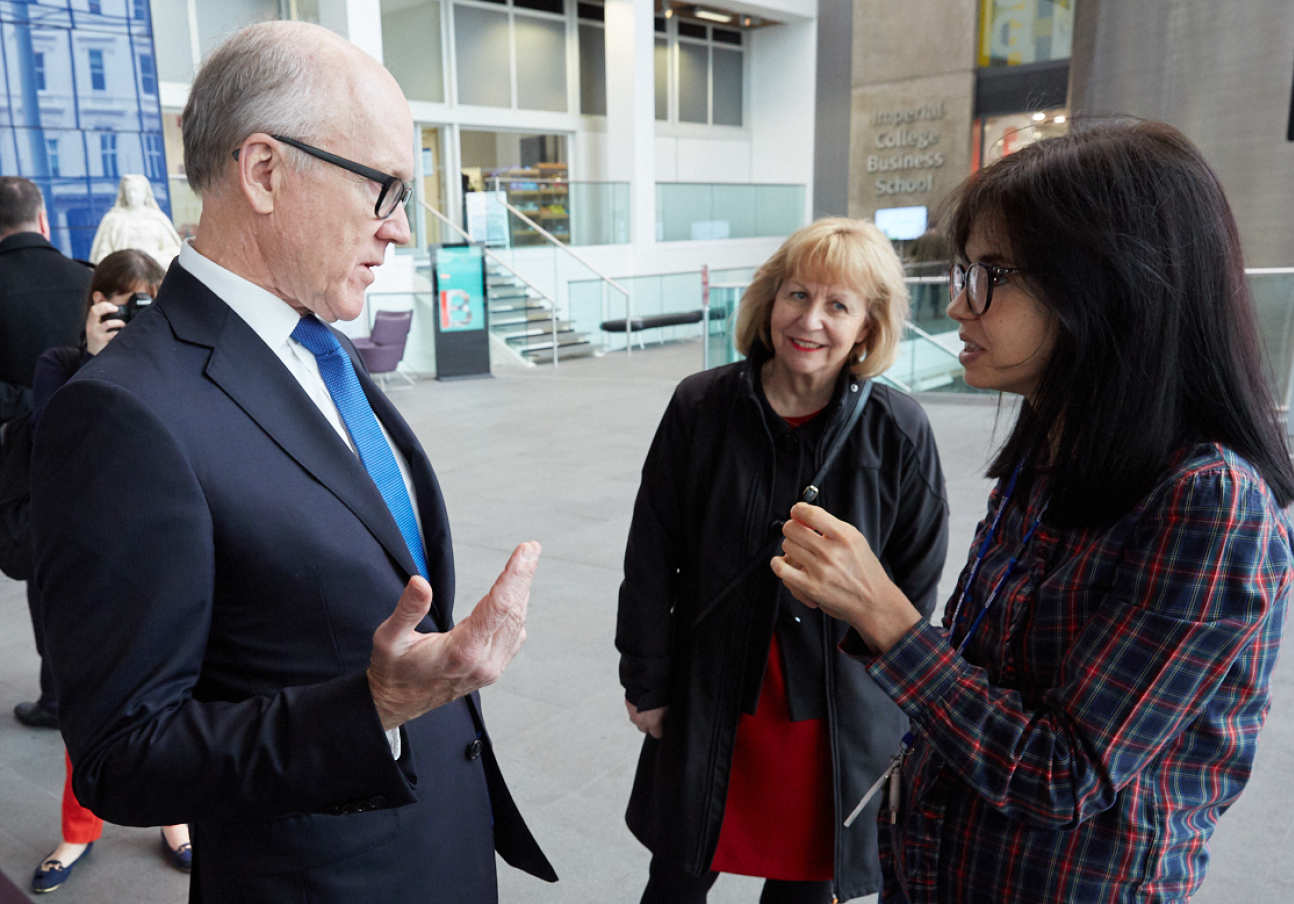 Ambassador Johnson also met with Dr Jess Wade, a postdoctoral researcher and physicist working with Professor Alasdair Campbell and Dr Matt Fuchter on chiral organic light emitting diodes, which has the potential to greatly improve the efficiency and lifetime of pixels in displays.
Ambassador Johnson also met with Dr Jess Wade, a postdoctoral researcher and physicist working with Professor Alasdair Campbell and Dr Matt Fuchter on chiral organic light emitting diodes, which has the potential to greatly improve the efficiency and lifetime of pixels in displays.
A regular visitor to the United States, Dr Wade was selected by the US Embassy London for the US State Department’s International Visitor Leadership Program (IVLP). The IVLP gave Dr Wade the opportunity to travel the US with participants from other countries and meet researchers, educators, scientists and engineers as they work to promote women in science.
Dr Wade said that the IVLP experience “was incredible. It was a huge honour and responsibility to be the UK’s representative,” as one of 50 emerging global leaders. She “developed a network of colleagues from all over the world, who are now collaborating on future projects.”
She is determined to keep campaigning on these issues and to see Imperial’s initiatives to support women in STEM reach a wider audience of partners, peers and collaborators around the world.
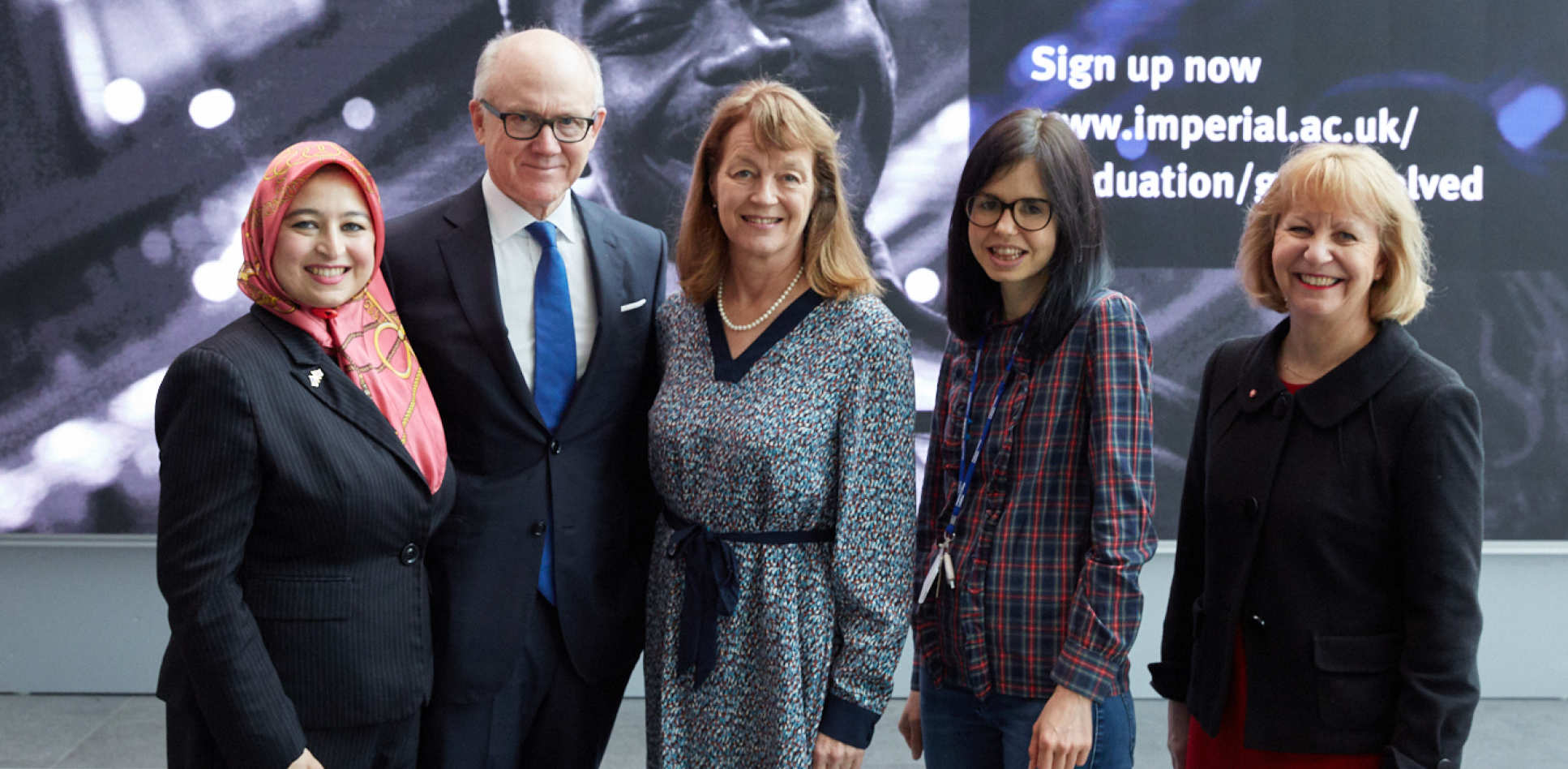
Article text (excluding photos or graphics) © Imperial College London.
Photos and graphics subject to third party copyright used with permission or © Imperial College London.
Reporter
Andrew Scheuber
Communications Division